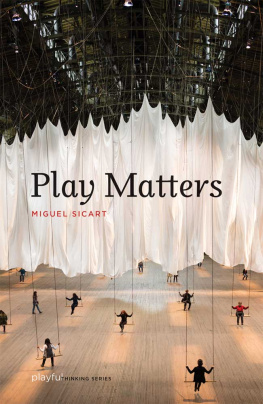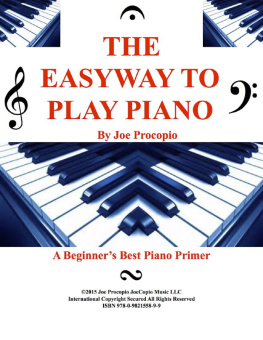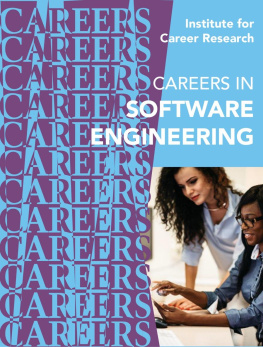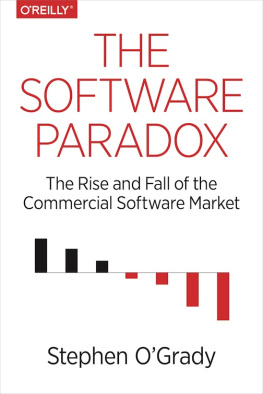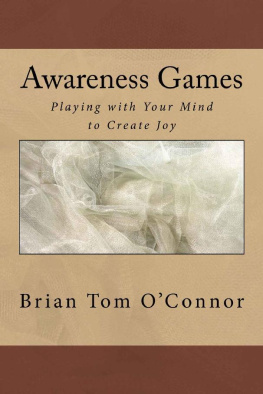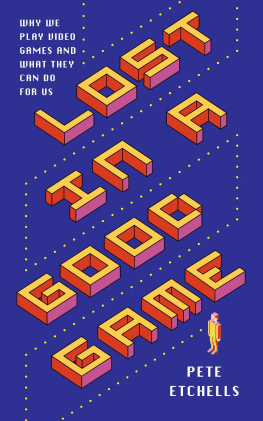Contents
List of Figures
Guide
Pagebreaks of the print version
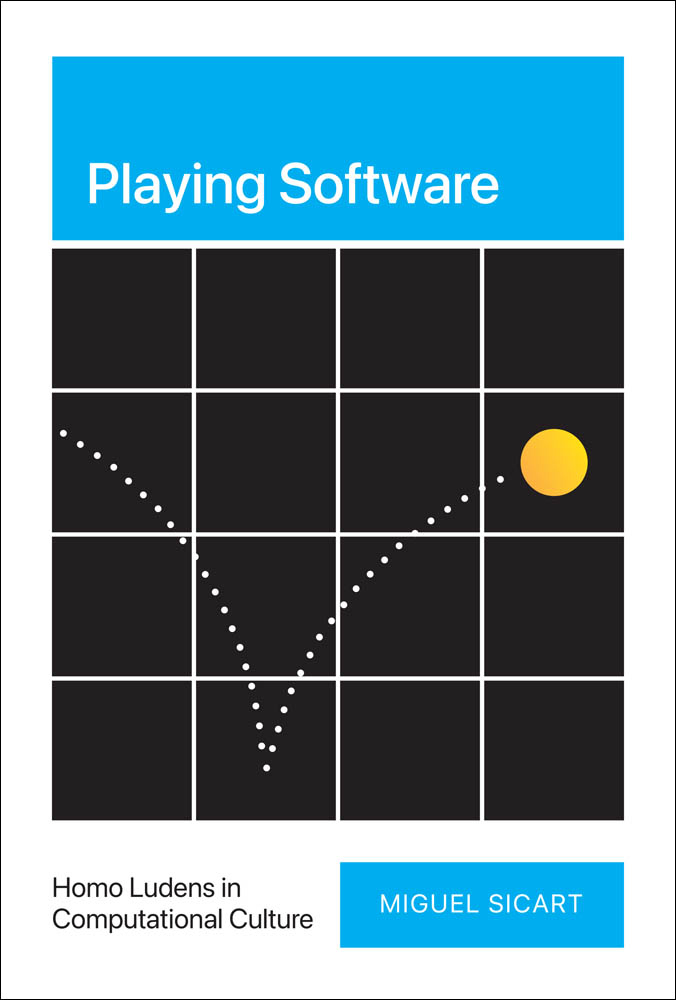
Playing Software
Homo Ludens in Computational Culture
Miguel Sicart
The MIT Press
Cambridge, Massachusetts|London, England
2023 Massachusetts Institute of Technology
All rights reserved. No part of this book may be reproduced in any form by any electronic or mechanical means (including photocopying, recording, or information storage and retrieval) without permission in writing from the publisher.
The MIT Press would like to thank the anonymous peer reviewers who provided comments on drafts of this book. The generous work of academic experts is essential for establishing the authority and quality of our publications. We acknowledge with gratitude the contributions of these otherwise uncredited readers.
Library of Congress Cataloging-in-Publication Data
Names: Sicart, Miguel, 1978 author.
Title: Playing software : homo ludens in computational culture / Miguel Sicart.
Description: Cambridge, Massachusetts ; London, England : The MIT Press, 2023. | Includes bibliographical references and index.
Identifiers: LCCN 2022011635 (print) | LCCN 2022011636 (ebook) | ISBN 9780262047722 (Hardcover) | ISBN 9780262373173 (epub) | ISBN 9780262373180 (pdf)
Subjects: LCSH: Play. | Human -computer interaction. | Electronic games. | Role playing. | Mass media and culture. | Information technologyMoral and ethical aspects. | Information technologyEconomic aspects.
Classification: LCC GV14 .S5193 2023 (print) | LCC GV14 (ebook) | DDC 794.8/1dc23/eng/20220908
LC record available at https://lccn.loc.gov/2022011635
LC ebook record available at https://lccn.loc.gov/2022011636
d_r0
Contents
- List of Illustrations
- : Three stages of ATTN. Authors screenshot.
- : The Facebook Demetricator. Screenshot by Ben Grosser.
- : The Facebook interface behind the interface. Authors screenshot.
- : Probably Not at work. Authors screenshot.
- : What the computer sees in Probably Not. Authors screenshot.
- : The author as Animoji. Authors screenshot.
- : This page, captured twice. Authors screenshot.
- : Kyle McDonalds Facework. Authors screenshot.
- : Working on Pippin Barrs It Is As If You Were Doing Work. Authors screenshot.
- : trk.network by Caroline Sinders and Cade Diehm. Authors screenshot.
- : Helping cars make decisions. Authors screenshot.
Preface
I thought I was done writing about play, and look where I am: writing the acknowledgments and preface for another book about play. The worst part is that I still think it is fun writing whole books about play.
The process is fun first and foremost because of the great folks at the MIT Press. I especially thank Noah Springer for getting this project to the finish line. Thanks also to Lillian Dunaj for patiently dealing with all the processes toward publication. This book is especially indebted to its first editor, Doug Sery, who believed in it and helped shape its early versions, turning my ramblings into a table of contents, a book proposal, and sample chapters. Thanks for everything, Dougthis one is for you.
I like to think about this book as my California project. Thanks to the efforts of my then boss, Laura Beloff, I was awarded a sabbatical that I decided to spend with the wonderful playful people at UC Santa Cruz. Thanks to Michael Mateas, Katherine Isbister, Michael John, Jim Whitehead, Noah Wardrip-Fruin, Arnav Jhala, Soraya Murray, and Susana Ruiz for welcoming me and giving me the time and space to think about all the crazy stuff in this book. In California I learned to appreciate fun in a different way. I also thank the forever friends we made there: Patrick Chuang, Steve McKay, and Amy Keys.
This book was first presented in its current form at a workshop at RMIT University. Thanks to Larissa Hjorth for inviting me and giving me license to talk about whatever I wanted for three days (a dangerous thing to encourage me to do!).
I am privileged to work at the Center for Computer Games Research, surrounded by colleagues and students from whom I learn anew the value of play. Special thanks to Martin Pichlmair and Hajo Backefriends of shared tastes whom I can always trust will call it when what I say makes no sense and I am just hand waving. My students in the courses Playable Media and PlayLab have been instrumental in refining my ideas so that they were somewhat comprehensible outside my own head. I owe them many sanity points.
Many thanks to the artists Ben Grosser, Pippin Barr, Caroline Sinders, Cade Diehm, and Kyle McDonald for the image rights to their work.
While writing this book was fun, making and publishing ridiculous software is probably the most entertaining thing Ive done in my career, and Im happy that some of it has ended up in this book. Thanks to Irina Shklovski and Christina Neumayer for aiding and abetting each single stupid idea I had about an app I want to make. And thanks to Luca Rossi for not stopping us!
Ane and Carlos and Silas make everything funthank you.
I have written books and articles and given talks and keynotes, but I still think that my most important contributions happen in the daily engagement with students. I would like to also dedicate this book to the two teachers from whom I learned the most about being a teacher, so many years ago: to Teresa Moure, for all the revolutions, and to Francisco Mateo, who started it all.
I have tried to do something a bit different with this book. For example, there are academic references and a reading list, but the mode of argumentation is not always classically academic. This is an academic book, dont get me wrong, but I hope that it is one of a different kind. There is some close analysis of phenomena, but I preferred to give a broad overview rather than a detailed analysis. My goal is to write a book of ideasa collection of connected thoughts that I hope will spark conversations, discussions, disagreements, and revolts.
The ideas that I present here are based on conventional, classic academic research, and for readers who are interested in those depths, heres the list of my peer-reviewed published articles where I presented the main thesis of the book:
Quixotean Play in the Age of Computation. American Journal of Play 10, no. 3 (2018): 249264.
Play in the Information Age. Philosophy and Technology 32 (2019): 517539.
Playing Software: The Role of The Ludic in the Software Society. Information, Communication, and Society 23, no. 14 (2020): 20812095.
Playthings. Games and Culture 17, no. 1 (2022): 140155.
Playful Capitalism, or Play as an Instrument of Capital. Contracampo 40, no. 2 (2021): 50103.
Pataphysical Software: (Ridiculous) Technological Solutions for Imaginary Problems, in Proceedings of the 2020 ACM Designing Interactive Systems Conference, 18591871 (with Irina Shklovski). New York: ACM, 2020.
But I dont want this to be a book-length article. I dont even want to be right. I want to present a set of ideas that I think make sense and let readers play with them. I hope this book opens possibilities and provokes new ideas or heated counterarguments. I hope the way I see this software society we live in is somewhat contagious through these words and that we end up somewhere, together, talking about these and other ideas and having fun.


